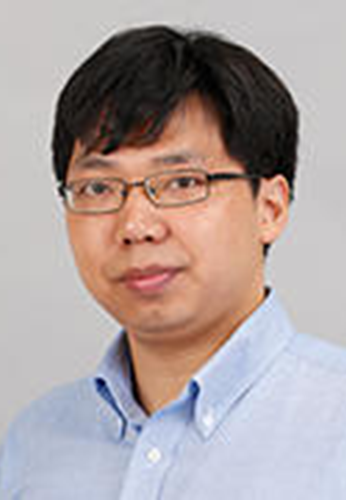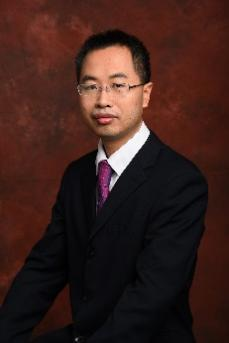
Prof. Weijia Jia
Beijing Normal University at Zhuhai, China
Weijia Jia is currently a Chair Professor of the Joint AI and Future Networking Research Institute of Beijing Normal University (BNU, Zhuhai) and United International College (UIC), Zhuhai, Guangdong, China. Before joining BNU/UIC, he served as the Deputy Director of the State Kay Laboratory of Internet of Things for Smart City at the University of Macau and Zhiyuan Chair Professor at Shanghai Jiaotong University, PR China. He received his BSc/MSc degrees from Center South University, China in 1982 and 1984, and his a PhD degree from Polytechnic Faculty of Mons, Belgium in 1993, all in computer science. Between 1993 to 1995, he joined the German National Research Center for Information Science (GMD) in Bonn (St. Augustine) as a research fellow. From 1995 to 2013, he served at the City University of Hong Kong as a professor. His contributions have been recognized for the research of optimal network routing and deployment, vertex cover, anycast and multicast protocols, sensors networking, knowledge relation extractions, NLP, and intelligent edge computing. He has over 600 publications in prestigious international journals/conferences, including papers, books, and book chapters. He has received the best product awards from the International Science & Tech. Expo (Shenzhen) in 2011/2012 the 1st Prize of Scientific Research Awards from the Ministry of Education of China in 2017 and many provincial science and tech awards. He has served as an area editor for various prestige international journals, chair, and PC member/keynote speaker for many top international conferences. He is the Fellow of IEEE and the Distinguished Member of CCF.
Speech Title:
Empowerment LLM Access with Edges
Abstract:
Large Language Models (LLMs) are widely used across various domains, but deploying them in cloud often leads to significant response delays and high costs, undermining Quality of Service (QoS) at the network edge. Although caching LLM request results at the edge using vector databases can greatly reduce response times and costs for similar requests, this approach has been overlooked in prior research. To address this, we propose a novel Vector database-assisted cloud-Edge collaborative LLM QoS Optimization framework that caches LLM request results at the edge using vector databases, thereby reducing response times for subsequent similar requests. Unlike methods that modify LLMs directly, our model leaves the LLM’s internal structure intact and is applicable to various LLMs. To build the model, we formulate the QoS optimization problem as a Markov Decision Process and design an algorithm based on Multi-Agent Reinforcement Learning. Our algorithm employs a diffusion-based policy network to extract the LLM request features, determining whether to request the LLM in the cloud or retrieve results from the edge’s vector database. Implemented in a real edge system, our experimental results demonstrate that our algorithms significantly enhance user satisfaction by simultaneously reducing delays and resource consumption for edge users of LLMs. In addition, we also demonstrate our recent work of Large-Scale Open-Domain Tabular Question Answering Dataset for Real Estate Sector with Edges.

Prof. Yinqiang Zheng
Foreign Fellow, The Engineering Academy of Japan
The University of Tokyo, Tokyo, Japan
Artificial Intelligence Research Center, The University of Tokyo, where he leads the Optical Sensing and Camera System (OSCARS) laboratory. Professor Zheng integrates artificial intelligence with optical imaging, proposing innovative interdisciplinary concepts such as “Optics for Better AI” and “AI for Best Optics.” He has developed pioneering equipment including the world’s first variable-frequency array-based photoacoustic 3D vascular imaging system and a microscopic fluorescence spectrophotometer. He has served as an area chair for major international conferences such as ICLR, NeurIPS, CVPR, ICCV, and ACM MM. His contributions have been recognized with the Konica Minolta Imaging Science Award and the Funai Academic Award, and in April 2025, he was elected as a Foreign Fellow of the Engineering Academy of Japan.
Speech Title:
AI-driven Automatic Design
Abstract:
This talk will cover our recent researches on utilizing deep learning to optimize the design of physical structures, as to as to maximize the performance of a specific computer vision task under various practical constraints. Three typical examples, including filter response design to maximize the performance of spectral reconstruction, illumination multiplexing to boost the NIR-to-RGB translation accuracy, texture design to improve the recognition accuracy under adversarial imaging conditions, will be introduced, and future directions on AI-human collaborative design will be discussed.

Prof. Yuhui Shi
Southern University of Science and Technology, Shenzhen, China
Dr. Yuhui Shi is a Chair Professor in the Department of Computer Science and Engineering, Southern University of Science and Technology (SUSTech), Shenzhen, China. Before joining SUSTech, he was with the Department of Electrical and Electronic Engineering at the Xi’an Jiaotong-Liverpool University (XJTLU),Suzhou, China, from January 2008 to August 2016, and was with the Electronic Data Systems Corporation(EDS), Indiana, USA, from October 1998 to December 2007. He is an IEEE Fellow, and the Editor-in-Chief of the International Journal of Swarm Intelligence Research. Dr. Shi co-authored a book on Swarm Intelligence together with Dr. James Kennedy and Dr. Russell C. Eberhart, and another book on ComputationalIntelligence: Concept to Implementation together with Dr. Russell C. Eberhart.
Speech Title:
Swarm Learning
Abstract:
In this talk, the swarm learning, a combination of swarm intelligence and machine learning, will be introduced. First, why swarm intelligence should be developed and used will be discussed, followed by a brief introduction to swarm intelligence; Second, why it is necessary to develop swarm learning will be explained, followed by some basic frameworks for swarm learning; finally, several examples of swarm learning will be utilized to illustrate the swarm learning.

Prof.Zhiwen Yu
South China University of Technology, China
Zhiwen Yu is a Professor in School of Computer Science and Engineering, South China University of Technology, China. He received the Ph.D. degree from the City University of Hong Kong, Hong Kong, in 2008. Dr. Yu has authored or coauthored more than 200 refereed journal articles and international conference papers, including more than 80 articles in the journals of IEEE Transactions, h-index 50,Google citation 12000. He is an Associate Editor of the IEEE Transactions on systems, man, and cybernetics: systems, and the informatics journal. Dr. Yu is in charge of or take part in more than 30 research projects, such as the National Natural Science Foundation of China (the Key Program、the General Program and the Youth Program), National Natural Science Foundation of China for Excellent Young Scientists, the Key R&D Program of Guang Dong Province, and so on. He is a senior member of IEEE and ACM, a Member of the Council of China Computer Federation from 2016 to 2023 (CCF).
Speech Title:
Imbalanced Learning Theory And Applications
Abstract:
Imbalanced learning is a critical task in machine learning, addressing datasets with significant class disparities, which are prevalent in applications such as healthcare, finance, and security. While balanced datasets are ideal for training robust classifiers, the reality of skewed class distributions in real-world scenarios makes imbalanced learning essential for effective model performance. One of the primary challenges in this domain is the classifier’s tendency to favor the majority class, resulting in poor predictive accuracy for the minority class, which is often of greater interest. In many cases, only partial or indirect indicators of the underlying class imbalance—such as feature distributions or data sampling biases—are available, complicating the learning process. This talk will discuss recent research on innovative techniques to tackle these challenges. For instance, the Classifier Ensemble Based on Multiview Optimization addresses high-dimensional imbalanced data by optimizing multiple sub-views to reduce feature redundancy and enhance classification performance. Similarly, the Imbalance Large Margin Nearest Neighbor algorithm improves feature spaces through metric learning and oversampling, enabling better separation of minority and majority classes. These methods effectively model the latent structure of class disparities and mitigate the bias toward the majority class, leading to more accurate and robust classifiers.
